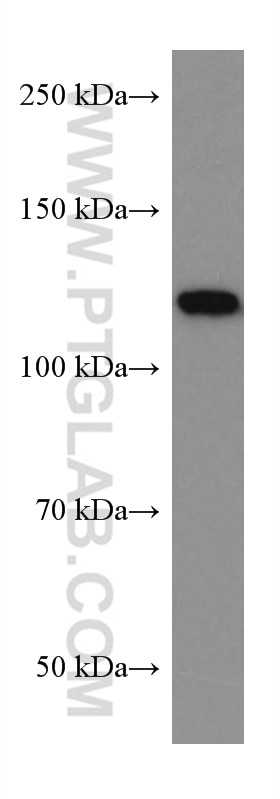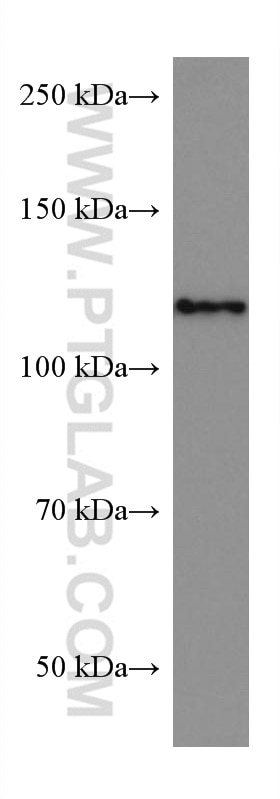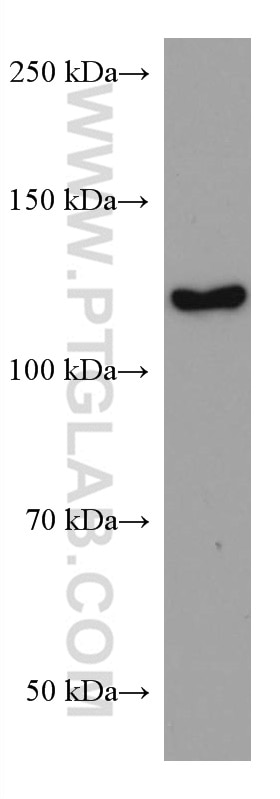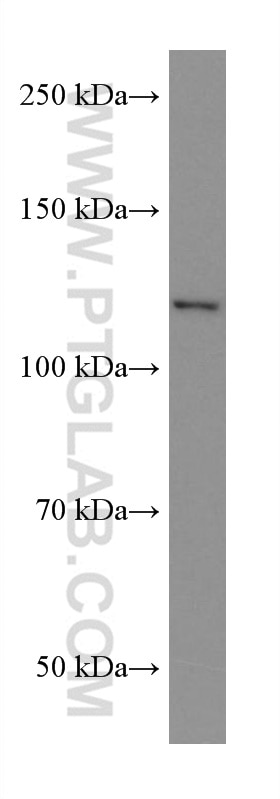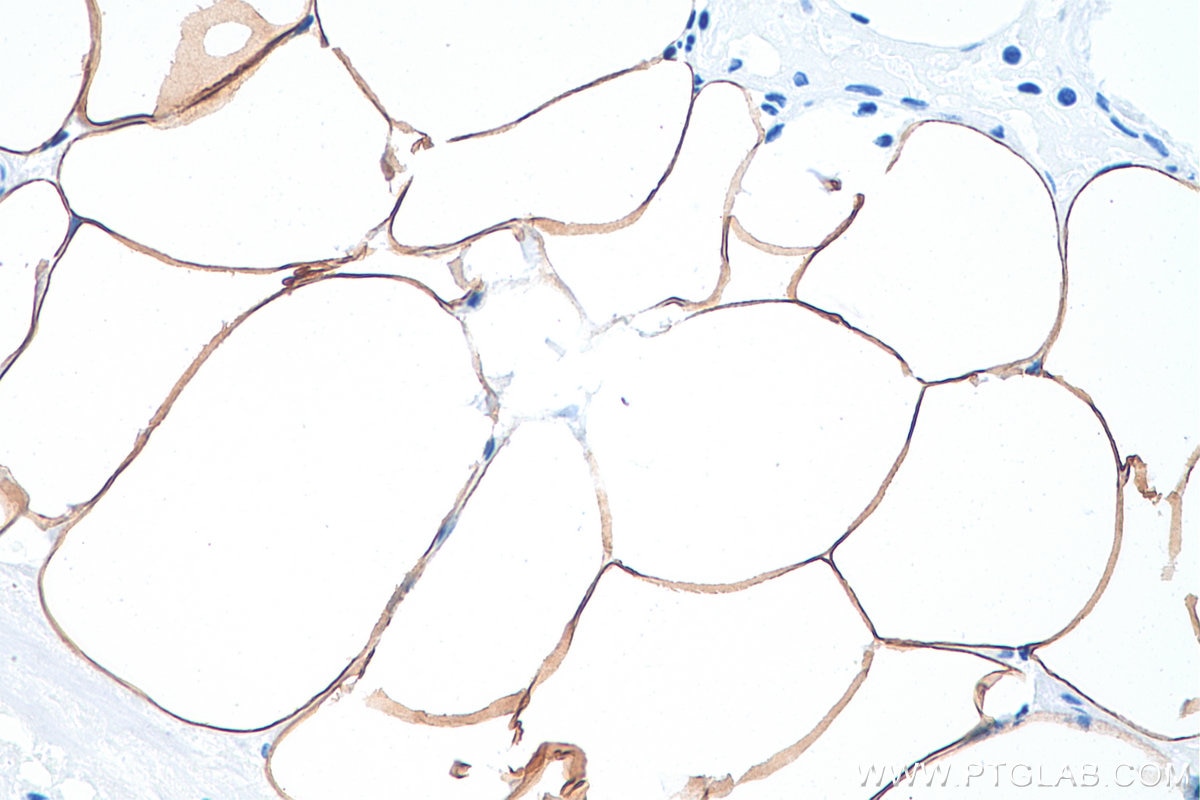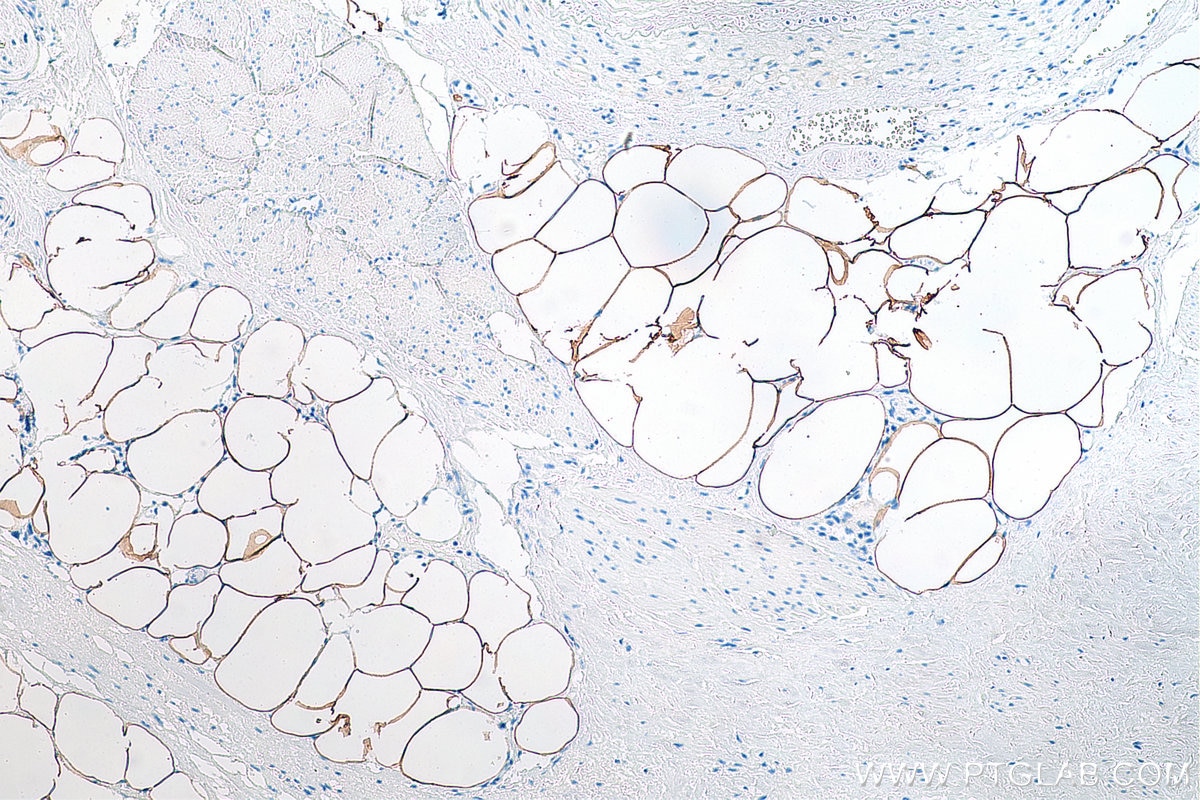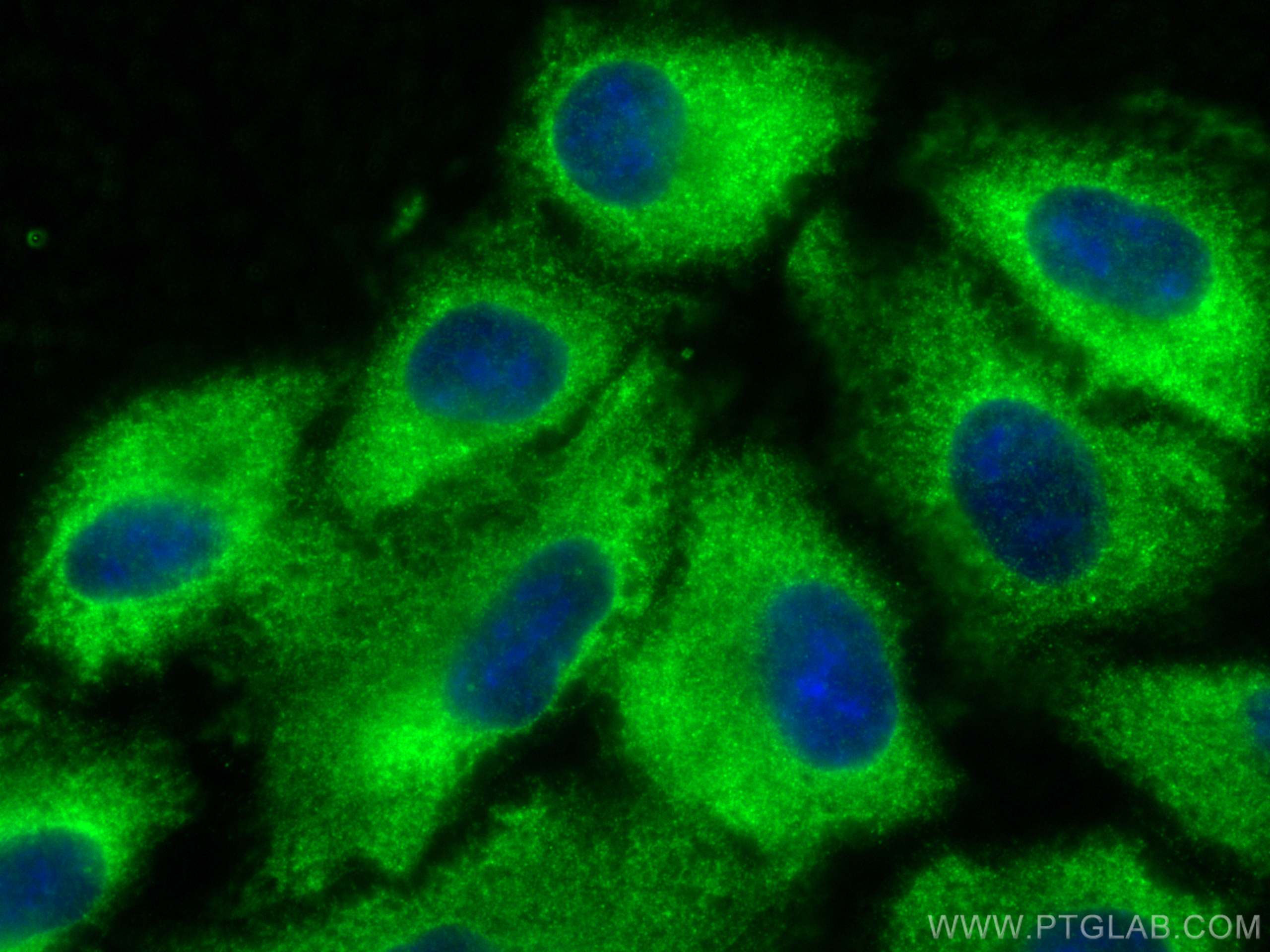- Featured Product
- KD/KO Validated
ACLY Monoklonaler Antikörper
ACLY Monoklonal Antikörper für WB, IHC, IF/ICC, ELISA
Wirt / Isotyp
Maus / IgM
Getestete Reaktivität
human, Maus, Ratte
Anwendung
WB, IHC, IF/ICC, IP, ELISA
Konjugation
Unkonjugiert
CloneNo.
1E10D5
Kat-Nr. : 67166-1-Ig
Synonyme
Geprüfte Anwendungen
| Erfolgreiche Detektion in WB | Jurkat-Zellen, MCF-7-Zellen |
| Erfolgreiche Detektion in IHC | humanes Prostatakarzinomgewebe Hinweis: Antigendemaskierung mit TE-Puffer pH 9,0 empfohlen. (*) Wahlweise kann die Antigendemaskierung auch mit Citratpuffer pH 6,0 erfolgen. |
| Erfolgreiche Detektion in IF/ICC | A549-Zellen |
Empfohlene Verdünnung
| Anwendung | Verdünnung |
|---|---|
| Western Blot (WB) | WB : 1:1000-1:10000 |
| Immunhistochemie (IHC) | IHC : 1:1000-1:4000 |
| Immunfluoreszenz (IF)/ICC | IF/ICC : 1:400-1:1600 |
| It is recommended that this reagent should be titrated in each testing system to obtain optimal results. | |
| Sample-dependent, check data in validation data gallery | |
Veröffentlichte Anwendungen
| KD/KO | See 1 publications below |
| WB | See 12 publications below |
| IF | See 1 publications below |
| IP | See 1 publications below |
Produktinformation
67166-1-Ig bindet in WB, IHC, IF/ICC, IP, ELISA ACLY und zeigt Reaktivität mit human, Maus, Ratten
| Getestete Reaktivität | human, Maus, Ratte |
| In Publikationen genannte Reaktivität | human, Maus, Ratte |
| Wirt / Isotyp | Maus / IgM |
| Klonalität | Monoklonal |
| Typ | Antikörper |
| Immunogen | ACLY fusion protein Ag7709 |
| Vollständiger Name | ATP citrate lyase |
| Berechnetes Molekulargewicht | 121 kDa |
| Beobachtetes Molekulargewicht | 120 kDa |
| GenBank-Zugangsnummer | BC006195 |
| Gene symbol | ACLY |
| Gene ID (NCBI) | 47 |
| Konjugation | Unkonjugiert |
| Form | Liquid |
| Reinigungsmethode | Caprylsäure/Ammoniumsulfat-Präzipitation |
| Lagerungspuffer | PBS with 0.02% sodium azide and 50% glycerol |
| Lagerungsbedingungen | Bei -20°C lagern. Nach dem Versand ein Jahr lang stabil Aliquotieren ist bei -20oC Lagerung nicht notwendig. 20ul Größen enthalten 0,1% BSA. |
Hintergrundinformationen
ACLY(ATP-citrate synthase) is also named as ACL. It is the primary enzyme responsible for the synthesis of cytosolic acetyl-CoA. ACLY serves as not only a target in oxygenated cells for suppression of lipid synthesis and histone acetylation, but also as a susceptible target in hypoxic cells to restore inhibition of glycolysis. In nonsmall cell lung carcinoma and hepatocellular carcinoma, ACLY is overexpressed compared with normal parenchyma suggesting that ACLY may represent a common target among highly malignant tumors(PMID:19795461). This protein has 2 isoforms produced by alternative splicing.
Protokolle
| PRODUKTSPEZIFISCHE PROTOKOLLE | |
|---|---|
| WB protocol for ACLY antibody 67166-1-Ig | Protokoll herunterladen |
| IHC protocol for ACLY antibody 67166-1-Ig | Protokoll herunterladenl |
| IF protocol for ACLY antibody 67166-1-Ig | Protokoll herunterladen |
| STANDARD-PROTOKOLLE | |
|---|---|
| Klicken Sie hier, um unsere Standardprotokolle anzuzeigen |
Publikationen
| Species | Application | Title |
|---|---|---|
Adv Sci (Weinh) Transcriptional Regulation of De Novo Lipogenesis by SIX1 in Liver Cancer Cells | ||
Phytomedicine Melittin suppresses ovarian cancer growth by regulating SREBP1-mediated lipid metabolism | ||
Int Immunopharmacol ACLY inhibitor reduced Porphyromonas gingivalis-induced pyroptosis by suppressing microtubules acetylation in macrophages
| ||
Molecules The Different Mechanisms of Lipid Accumulation in Hepatocytes Induced by Oleic Acid/Palmitic Acid and High-Fat Diet | ||
Mediators Inflamm The Mutual Inhibition of FoxO1 and SREBP-1c Regulated the Progression of Hepatoblastoma by Regulating Fatty Acid Metabolism. | ||
Cell Death Dis ARHGEF3 regulates the stability of ACLY to promote the proliferation of lung cancer |
Rezensionen
The reviews below have been submitted by verified Proteintech customers who received an incentive for providing their feedback.
FH Domenico (Verified Customer) (10-26-2022) |
|
